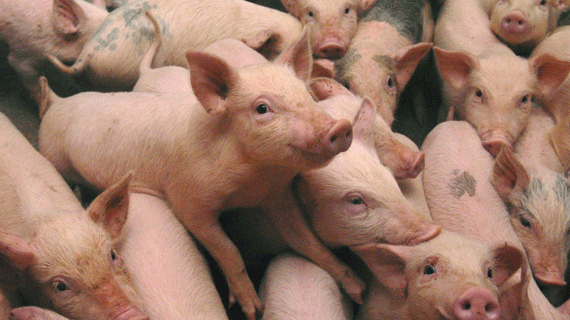
THE Nkayi Rural District Council is up in arms with villagers after it resolved to round up stray pigs at the business centre as they have become a nuisance.
CHIEF REPORTER
The council has so far rounded up 41 pigs out of the estimated 200 that are roaming the business centre.
Former council chairperson and councillor for Ward 29, Kufakwezwe Ncube, said the decision was reached at a stakeholders’ meeting in mid-April after fears of a possible outbreak of swine flu.
“We held a stakeholders’ meeting and resolved to round up the pigs at the business district. We gave all pig owners a seven-day notice to collect their pigs, but the majority ignored us. We estimate that there are close to 200 stray pigs and that is not healthy,” he said.
“In conjunction with the Society for the Prevention of Cruelty to Animals (SPCA), we have rounded up 41 pigs, but some of the owners were quick to hide the pigs.
The perception is that council is against people keeping animals.
“However, we have also realised that most pig sties are not as per SPCA specification and the next phase is to confiscate the pigs without notice,” he said.
- Chamisa under fire over US$120K donation
- Mavhunga puts DeMbare into Chibuku quarterfinals
- Pension funds bet on Cabora Bassa oilfields
- Councils defy govt fire tender directive
Keep Reading
Meanwhile, Ncube said there were fears of a rabies outbreak in some parts of the district after two people died after being beaten by dogs in Gwelutshena last week.
Ncube said there were about 12 000 dogs in the district.
“We fear a rabies outbreak as two people have so far died. However, the major problem is that the district hospital has no vaccination and the SPCA has pledged to source dosages.
“As council, we are planning to charge each homestead with dogs $1 and channel the funds towards procuring vaccination,” Ncube said. Rabies is spread by infected saliva that enters the body through a bite or broken skin.
People are usually infected following a deep bite or scratch by an infected animal, usually dogs, or from consuming meat from animals that would have died from a rabies infection.
The virus travels from the wound to the brain where it causes swelling, or inflammation.










